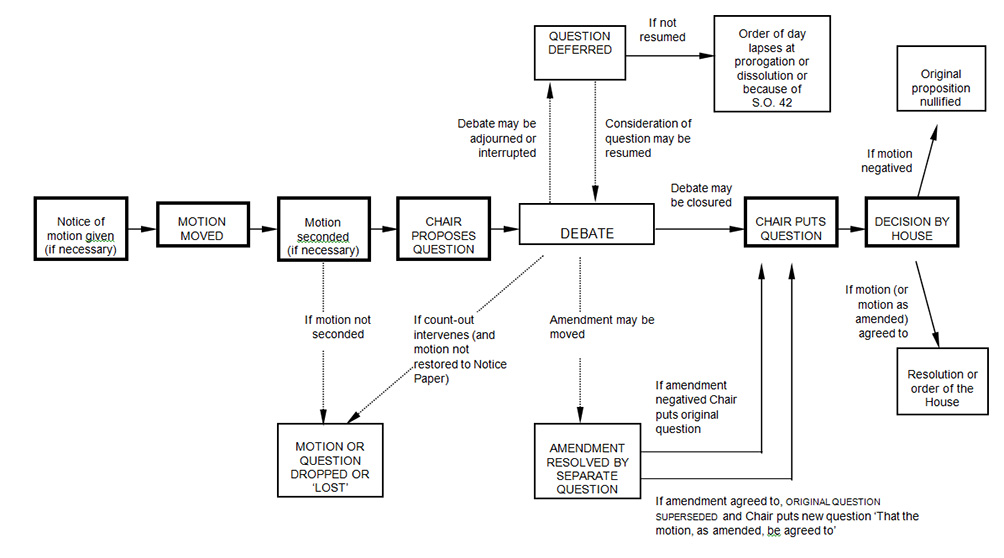Definition of a motion
In its widest sense a motion is any proposal made for the purpose of eliciting a decision of the House. It may take the form of a proposal made to the House by a Member that the House do something, order something to be done or express an opinion with regard to some matter. It must be phrased in such a way that, if agreed to, it will purport to express the judgment or will of the House. Almost every matter is determined in the House by a motion being moved, the question being proposed by the Chair, the question then being put by the Chair after any debate and a decision being registered either on the voices or by a division (counted vote) of the House. There is provision for some questions to be resolved by ballot and condolence motions are generally resolved not on the voices but by Members, at the suggestion of the Chair, rising in their places to indicate their support (see page 330). When a question on a motion is agreed to, that motion becomes an order or resolution of the House (see page 314).
A motion does not necessarily lead to a decision of the House. In some circumstances it may be dropped, it may be withdrawn, or the question before the House may be superseded or deferred. The procedures involved in dealing with a motion, covered in detail in the following text, are outlined in diagrammatic form on page 290.
Motions may be conveniently classified into two broad groupings:
-
Substantive motions: These are self-contained proposals drafted in a form capable of expressing a decision or opinion of the House.
-
Subsidiary motions: These are largely procedural in character. The term covers:
-
ancillary motions dependent upon an order of the day, for example, a motion that a bill be read a second or third time;
-
a motion made for the purpose of deferring a question, for example, a motion that the debate be now adjourned;
-
a motion dependent upon another motion, such as an amendment; and
-
a motion flowing from an occurrence in the House, for example, that a ruling be dissented from or that a Member be suspended from the service of the House after having been named.
Standing order 78 specifies a number of these procedural motions which are not open to debate or amendment.
The procedure for dealing with a motion
